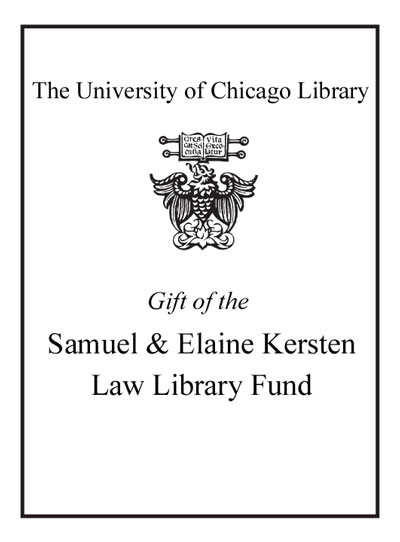| Summary: | "This examination of the jurisdiction of international courts and the admissibility of cases before them analyses jurisdictional and admissibility rules in light of the roles assumed by international courts in international life and in light of the roles that jurisdictional and admissibility rules play in promoting the effectiveness and legitimacy of international courts. The theory pursued views jurisdiction as a form of delegation of power (the power to exercise judicial power and decide the law) and regards admissibility as a framework for deciding upon the propriety of exercising such power. On the basis of this theoretical framework, the author critically evaluates the exercise of judicial discretion in the existing case law of a variety of international courts, distinguishing between the category-based case selection implicit in jurisdictional rules and the case-by-case analysis and selection implicit in rules on admissibility"--
"This book studies the role that legal rules on jurisdiction and admissibility play in the life and operation of international courts. I will argue that jurisdictional rules define the legal powers of courts and that admissibility rules define their ability to refrain from exercising legal power. Accordingly, the underlying subject of this book is the legal power that international courts can exercise in the international realm. Of course, legal powers are not the only type of power that courts may exercise: courts also exert political influence and moral authority, and contribute to shaping the legal culture of the various constituencies with which they interact. Nevertheless, legal powers are central to the operation of international courts. Not only do legal powers constitute the most dominant or quintessential set of powers exercised by international courts; legal powers also delineate and confer legitimacy upon the other powers wielded by international courts, thereby facilitating and controlling all aspects of their operation"--
|
|---|

